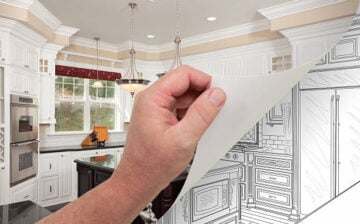
Buying a home is perhaps one of the most significant financial decisions. But deciding to rent or buy a house and knowing the right time to buy a home may seem intimidating to some people. If you are in your 30s and beginning to think about buying a house, know that you are not alone. The average age of home buyers in developed nations is thirty-four.
Buying A Home in Your 30s
But owning property is a dream many of us cherish, and by the time you are in your 30s, you start to wish you could fulfil this ambition. But considering student loans, credit card debts, and small savings at this stage, it is customary to wonder if this is the right time for you. In this article, we will look at the advantages and disadvantages of buying or renting a home in your 30s, all the things you should consider when deciding to buy or rent a home, and planning your finances to prepare you for the decision you make.
Here are some advantages and disadvantages of buying or renting a home. It may help you gain a better perspective of both situations.
Advantages of Buying a House
There are several advantages to buying a house. Some of them are listed here –
- You don’t have to pay rent or deposit anymore. Rent is an expense that offers shelter in return, but EMI contributes to your wealth by giving you property ownership.
- Investment in real estate can offer great returns. As the valuation of your property increases, it adds to the value of your total assets to improve your credibility and wealth.
- You can turn your house into a source of earning by renting out a portion of your home or turning your home into an Airbnb.
- Buying a home is a significant step towards building retirement wealth. When you are old and retired, you can spend the rest of your days in your home. You don’t have to depend on anyone for shelter or care.
Disadvantages of Buying a House
Buying a house is not a smooth-sailing journey. There are many disadvantages to this move:
- Buying a house may put you into debt. Even if you have a steady income paying a home loan, EMIs can stress your finances.
- There are various additional costs like down payment, closing costs, insurance, and property taxes that homeowners need to bear, besides the house’s value.
- If you buy a house, it may tie you down to one location, making it difficult for you to move for work or family commitments.
Advantages of Renting a House
- Renting a house gives you the flexibility to move around. It is simpler to let go of a rented house if you wish to relocate to another city or country for work or family.
- Many people between the age of 35 to 50 face mid-life crises, such as loss of a job, end of a relationship, financial stress, etc. At such a time, it helps not to have the pressure of a home loan.
- When you live on rent, the landlord is responsible for any repairs, maintenance, or renovation that requires significant expenditure in the house.
- If you don’t have home loan EMIs to pay, you can channel your earnings towards reducing other debts like student loans, credit card bills, and also for savings.
Disadvantages of Renting a House
- Renting in your retirement years is not easy. If you live on rent long-term, you may end up relying on your family members for a place to live after retirement.
- Rent is an expense that eats into your savings. Instead of spending thousands of dollars on rent, it is better to invest in property and spend on EMIs.
Things to Consider
- What Kind of Home Do You Need? – If you are buying a home in your 30s, it is essential to think about the kind of home that will suit your needs in the long term. Think about commuting to work, sending children or future children to school, space for a home office, and the comfort and convenience of your family.
- Check Your Lifestyle & Monthly Expenses – Consider your lifestyle and monthly expenses vis-à-vis your income. Think about the costs you can cut to pay your EMIs without disrupting your savings or lifestyle.
- Consider the Long-Term Finances – Home loans and defaulting on your EMIs can adversely affect your credit score. Rectifying your credit score may take a long time, and until then, you must be in a good enough financial situation to pay off all your debts.
- Returns You Can Get if You Can Invest Money & Capitalize 401K – Think about the different investment avenues and compare that with an investment in real estate. If it is possible for you to invest money in other financial instruments, capitalize 401K and get better returns, it may not be a good idea to buy a home just yet.
In your 30s, renting and buying both have pros and cons. You can decide where you live, how much you earn, and how long you intend to live in the same place. Keep your ultimate objective in sight and weigh both sides of the equation before you decide to buy or rent a home. If you plan on moving into your dream home, make sure to check out the best Moving Services Company in the US.
We hope you found this blog post Should You Buy or Rent a Home in Your 30’s? useful. Be sure to check out our post The 5 Most Important Factors For Buying Your Dream House for more great tips!
Have Experience in the Moving Industry? Want an Additional Income Stream? Work With All Around Moving!
There are no recurring expenses, except purchasing your own leads. We give commission from all jobs you book with us. Click here to learn more.





